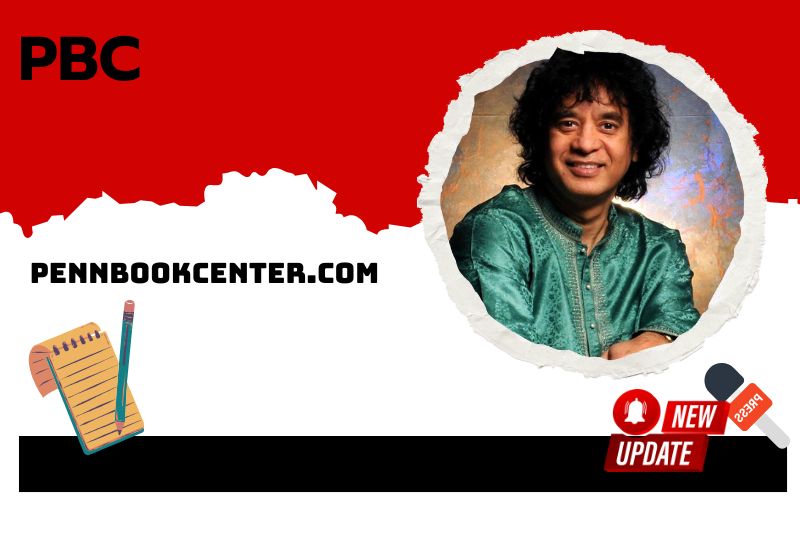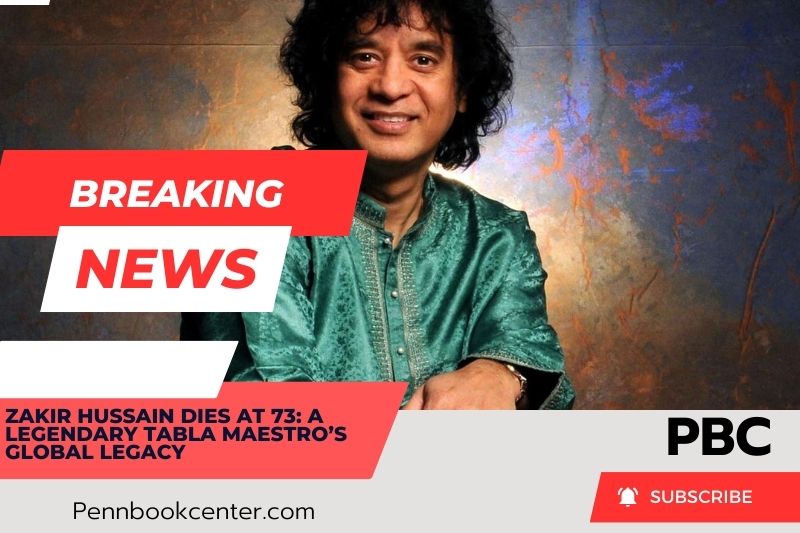Zakir Hussain, the world-renowned tabla virtuoso, passed away at the age of 73 on Sunday in San Francisco, leaving a monumental legacy in global music. Known for his pioneering role in merging traditional Indian rhythms with Western genres, Hussain’s influence spanned over five decades.
From his formative years with his father, Alla Rakha, to his iconic collaborations with artists like George Harrison and Béla Fleck, Hussain’s career shaped the landscape of world music forever.
Remembering Zakir Hussain: A Life in Music

Zakir Hussain’s musical journey began early, shaped by the rhythms of his family. His father, Alla Rakha, a tabla maestro in his own right, introduced Hussain to music at the tender age of seven.
For Hussain, music wasn’t just a profession—it was a sacred tradition.
He recalled how his father’s prayer was not spoken but sung in rhythmic patterns, marking the beginning of his deep connection to the tabla.
By his teenage years, Hussain was already showing promise. His unique ability to merge the complexities of Indian classical music with contemporary influences set him apart.
As a young man, he traveled to the United States in 1970, where he would go on to collaborate with a range of musicians, from jazz saxophonist Charles Lloyd to rock icons like George Harrison and Van Morrison.
His band, Shakti, formed in 1973, was instrumental in introducing Indian rhythms to a broader Western audience, blending jazz and Indian classical music.
The Global Legacy of Zakir Hussain
Hussain was more than just a tabla player; he was a cultural ambassador who bridged the gap between Eastern and Western musical traditions. His collaborations with Edgar Meyer and Béla Fleck helped redefine how Indian instruments could interact with Western styles.
The success of his band Shakti was pivotal in promoting the understanding and appreciation of Indian classical music on a global scale.
His appearances on NPR’s Tiny Desk Concerts in 2010 and 2023 highlighted his versatility and continued relevance in modern music. These performances weren’t just concerts; they were cultural exchanges that demonstrated his ability to merge the traditional with the contemporary seamlessly.
Beyond performance, Hussain’s work as a mentor and teacher had a far-reaching impact. He trained and inspired countless musicians, instilling in them the importance of both preserving tradition and embracing innovation. His legacy as an educator and a pioneer of global music fusion is unparalleled.
Zakir Hussain’s Achievements and Awards
Throughout his career, Zakir Hussain received numerous accolades, including three Grammy Awards in 2024. This achievement made him the first Indian musician to receive such a distinction in one year.
He won Best Global Music Album for his band Shakti, and Best Global Music Performance and Best Contemporary Instrumental Album for his collaboration with Edgar Meyer and Béla Fleck. These awards were not just a recognition of his virtuosity but also a testament to the global appeal of his music.
Hussain’s influence was also felt in prestigious musical events worldwide, where he performed alongside legends in various genres, showcasing his diverse talents.
His role as a pioneer in world music earned him the admiration of both critics and peers alike.

The Artistic Journey of a Tabla Maestro
Zakir Hussain’s artistry was deeply rooted in Indian classical music, yet it was his willingness to explore new musical territories that set him apart.
He wasn’t just a tabla player; he was a musical innovator who blended Indian rhythms with jazz, bluegrass, and rock, creating a sound that resonated with a wide range of audiences.
His work in Shakti is particularly noteworthy. The band, a groundbreaking fusion of Indian classical and Western jazz, brought together musicians from across the globe, including legendary guitarist John McLaughlin.
This collaboration created a new genre, known as Indian jazz fusion, which remains influential to this day.
Cause of Death and Final Years
Zakir Hussain passed away after a prolonged battle with idiopathic pulmonary fibrosis, a condition that causes progressive damage to the lungs.
Despite his declining health, Hussain continued to inspire musicians worldwide until his final days. His death marks the end of an era in Indian classical music but also signals the enduring power of his work.
The music world was quick to pay tribute to Hussain’s contributions. Musicians from various genres expressed their admiration for his unique sound and his dedication to preserving and evolving Indian musical traditions.
Zakir Hussain’s Legacy for Future Generations
Zakir Hussain’s influence will undoubtedly continue to inspire future generations of musicians. His work as a teacher and mentor to young musicians ensured that his legacy would live on.
The tabla will forever be linked to Hussain’s name, and his approach to blending Eastern rhythms with Western instruments has set the standard for the fusion genre.
For aspiring musicians, Hussain’s career is a blueprint for innovation. He taught us that music is about more than just technique; it’s about connecting with audiences on a deeply emotional level.
To learn more about Zakir Hussain’s net worth and his financial achievements, check out this detailed analysis of his career and earnings.
Conclusion
Zakir Hussain’s death at 73 is a significant loss for the world of music. His life’s work will continue to resonate across cultures, shaping the future of global music. We invite you to share your thoughts, explore more stories like this, and connect with us at Pennbookcenter.




